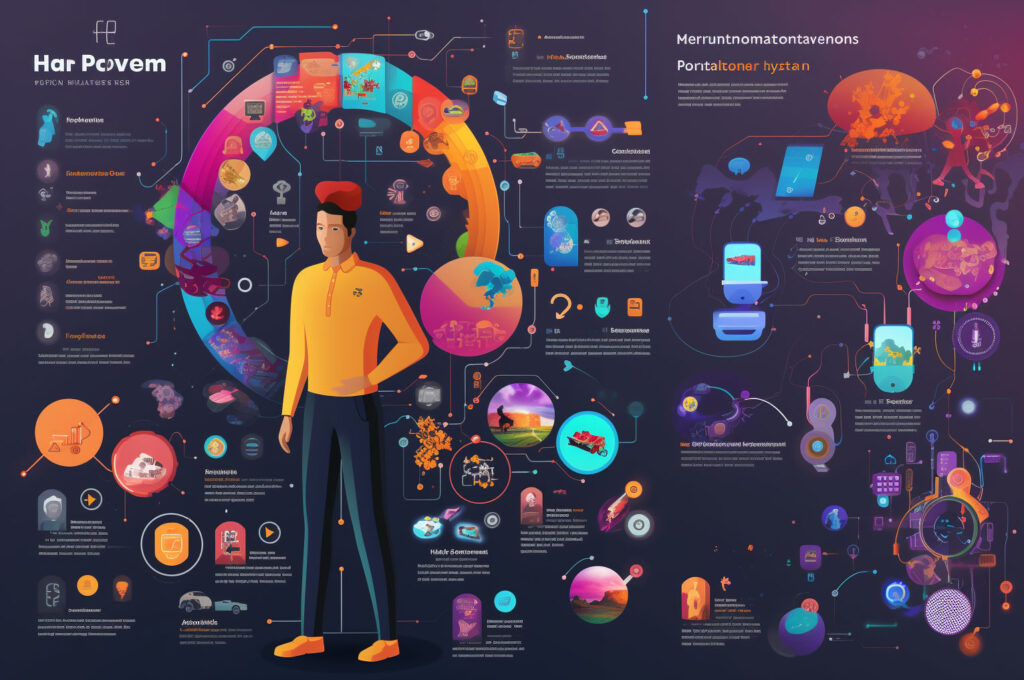In the ever-evolving landscape of digital marketing, staying ahead of the curve is paramount. As technology continues to advance at an astonishing pace, marketers find themselves at a crossroads, grappling with the challenge of not only capturing their audience’s attention but also creating meaningful connections that convert. The next big thing in digital marketing appears to be the seamless integration of cutting-edge technologies, data insights, and human touch: a strategy known as hyper-personalization.
The Evolution of Personalization
Personalization in marketing isn’t a new concept. For years, brands have been striving to create tailored experiences for their customers, leveraging demographic data, purchase history, and browsing behavior. However, the future of digital marketing takes personalization to a new level, encompassing a deeper understanding of customer intent, emotions, and context.

The Power of AI and Machine Learning
Central to the evolution of hyper-personalization is the integration of artificial intelligence (AI) and machine learning (ML) algorithms. These technologies enable marketers to process vast amounts of data in real time, extracting actionable insights that can guide campaign strategies. AI-driven tools can predict consumer preferences, behaviors, and even emotions, allowing marketers to deliver content that resonates on a profound level.
Contextual Marketing Redefined
Contextual marketing is set to undergo a transformative shift. Instead of merely considering where a consumer is in their buyer’s journey, hyper-personalization delves into the “why” behind their actions. By analyzing contextual cues such as current events, social media interactions, and even weather patterns, marketers can deliver content that feels tailor-made for that precise moment in the consumer’s life.

The Human Element: Empathy and Trust
While technology is at the forefront of this revolution, the human element remains irreplaceable. Successful hyper-personalization hinges on the ability to demonstrate genuine empathy, understanding, and care for customers. It’s not just about recommending products; it’s about showing that you understand their needs and aspirations. This human touch is what fosters trust in an increasingly digital world.
Privacy and Ethical Considerations
As with any advancement in technology, hyper-personalization brings along its ethical considerations. Striking the balance between providing tailored experiences and respecting user privacy is crucial. Transparency in data usage and giving users control over their personal information will be essential to building and maintaining trust.
Challenges and Future Prospects
While hyper-personalization holds tremendous promise, it’s not without its challenges. The sheer volume of data to be processed, the risk of algorithmic bias, and the potential for over-customization are all concerns that marketers will need to address.
Looking forward, the future of hyper-personalization could involve the convergence of virtual reality (VR) and augmented reality (AR) technologies. Imagine customers being able to “try on” products virtually or experiencing a brand’s story in an immersive environment. These innovations have the potential to take customer engagement to unprecedented heights.
In conclusion, the next big thing in digital marketing is poised to be hyper-personalization, driven by AI, machine learning, and a deep understanding of human emotions and context. By fusing technology with empathy and respect for user privacy, brands can create experiences that not only capture attention but also build lasting relationships. As the digital landscape continues to evolve, those who embrace hyper-personalization are likely to stand out in an increasingly crowded market.
